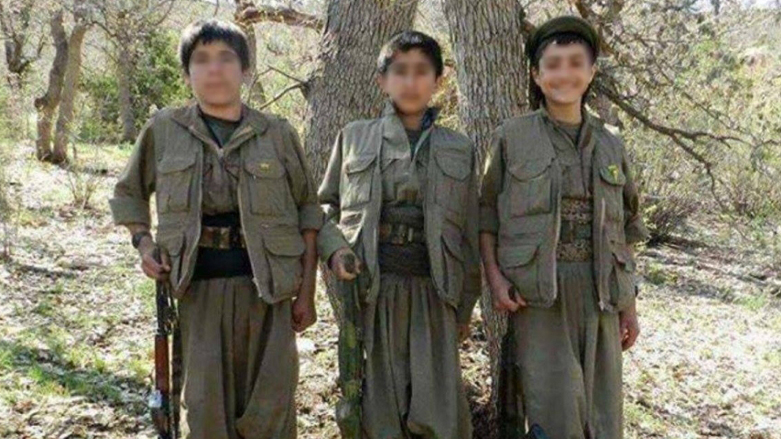US State Department: PKK continue to recruit and arm children in conflict

ERBIL (Kurdistan 24) – The US Department of State says that the Kurdistan Workers’ Party is continuing to recruit and arm children and then push them into areas of conflict, especially the Qandil mountains.
The PKK is based in Qandil and uses the area as a launchpad for attacks on Turkish forces, in addition to occupying border villages.
In its 2021 report on human trafficking, the State Department said: “Multiple sources report the PKK and People’s Protection Units (YPG) operating in the [Kurdistan Region of Iraq] and Sinjar continued to recruit and use children. In 2021, an unverified source reported that the PKK recruited dozens of children to prepare them for combat, including children from Kirkuk, Iraq.”
The report added that local nongovernmental organizations reported in 2018 that Yezidi militias in Sinjar recruited Yezidi boys, and that hundreds of Yezidi children had been recruited “by the PKK-aligned Yezidi Civil Protection Units (YPS) and other PKK-affiliated militias.”
“Children remain vulnerable to forcible recruitment and use by multiple armed groups operating in Iraq, including – but not limited to – ISIS, the PMF, tribal forces, the Kurdistan Workers’ Party (PKK), and Iran-backed militias,” the report said.
Other regional countries on the department's Child Soldiers Prevention Act List included Afghanistan, Iran, Libya, Syria, and Turkey, which was added for the first time.
In 2018, civil society organizations reported the PKK recruited and trained children from Sinjar, Makhmour, and other locations, and sent them to bases in Sinjar, Turkey, and the Qandil Mountains between Iraq and Iran.
Despite official calls for the PKK to leave the territory of the Kurdistan Region, the party still deploys its militants in hundreds of border villages.
The Kurdistan Regional Government has previously accused the PKK of hiding among the population and villages, using local residents as human shields during its battles with Turkey.
